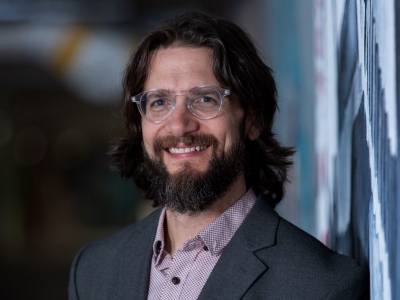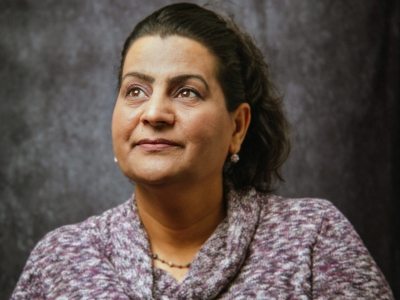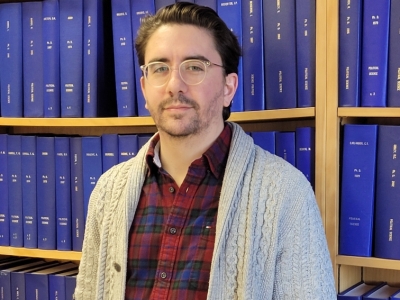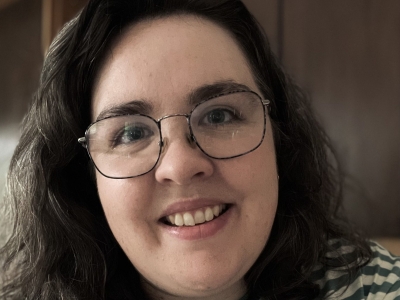Seven research projects—ranging from sustainable energy to international trade to First Nations infrastructure—have received financial support from the Social Sciences and Humanities Research Council (SSHRC) as part of its Insight Development Grant (IDG) program.
“Faculty of Public Affairs researchers are being recognized for the importance and relevance of their work by the research community,” said André Plourde, Dean of the Faculty of Public Affairs. “Their research is contributing to our society in important ways.”
According to SSHRC, the Insight Development Grants “enable the development of new research questions, as well as experimentation with new methods, theoretical approaches and/or ideas.”
2018 Insight Development Grant Recipients
Melanie Adrian, a professor in the Department of Law and Legal Studies will study “how Canadian Muslim youth negotiate personal and collective identity in the face of debates on integration and multiculturalism.” Her project is called Young and Muslim in Canada: Dancing the Poetics of Belonging.
Heather Dorries, a professor in the School of Public Policy and Administration, is exploring how policies governing floodwater infrastructure and emergency management in Manitoba affect First Nations communities. Her project is entitled, Red Rivers: Developing an Indigenous Political Ecology of Floodwater Governance.
“This project looks at the development and management of floodwater infrastructure in Manitoba over a 70-year period, and its impact on Indigenous communities,” said Dorries. “In an age of climate change, cities can expect more extreme weather and an increased flood risk. This research will contribute to a discussion on how infrastructure planning and sustainability can take Indigenous peoples and knowledge into account.”
Megan Gaucher, a professor in the Department of Law and Legal Studies, will explore how the Canadian government’s “reliance on a particular definition of family as a point of access for citizenship ultimately creates socio-legal distinctions not only between families living within Canadian borders and immigrant families seeking reunification, but also among immigrant families themselves.” Her project is entitled, Temporary foreign workers, Canadian citizenship and the construction of “foreign” families.
Pablo Heidrich, a professor in the Global & International Studies program in Arthur Kroeger College, is examining how “lithium being mined in Argentina, Bolivia and Chile is contributing—or not—to sustainable and inclusive economic development of these three countries, and especially, to the local communities in the regions where the mines are.” His project is entitled, Lithium Development Impacts in Argentina, Bolivia and Chile.
Meredith Lilly, a professor in the Norman Paterson School of International Affairs (NPSIA), focuses on international trade. As international firms increasingly regard moving skilled labour around the world as key to their success, Lilly’s project examines how policy reforms to high-skilled labour mobility programs influence Canada’s attractiveness relative to the United States for high-tech businesses.
“As policy-makers continue to streamline work permits for high-skilled foreign workers, it is critical to understand the influence these programs are having on Canada’s labour market,” said Lilly. “This project will offer much needed evidence to inform policy development.”
Her project is entitled, Go North, Young Tech Talent! The Influence of Canadian versus U.S. Skilled Foreign Worker Policies on Global Firm Location
Alexandra Mallett, a professor in the School of Public Policy and Administration, is working with research collaborator Stephanie Irlbacher-Fox to examine ongoing energy system changes in the Northwest Territories, where a number of sustainable energy initiatives and alternative governance arrangements are unfolding.
“Four years ago, we were asked by Polar Knowledge Canada (POLAR) to get a snapshot of the sustainable energy landscape in the North,” said Mallett. “The idea is to build from this study and determine how changes are unfolding in communities. I was recently in Northwest Territories to gauge whether or not this research might be something mutually beneficial and to listen and learn from Indigenous peoples.”
Their project is entitled, Governing Energy System Change in the Canadian Arctic: Alternative Sources of Innovation in Communities?
Candace Sobers, a professor in the Bachelor of Global and International Studies (BGInS) program in Arthur Kroeger College, has conducted research that found “different waves of African independence permanently altered what she calls ‘racialized geopolitics’, that is, the political ordering of the world along racial and spatial lines, by challenging established ideas about race, self-determination, and state-making.”
Wednesday, February 6, 2019 in Arthur Kroeger College of Public Affairs, Bachelor of Global and International Studies, CSPC2021, Department of Law and Legal Studies, General, News, Research, School of Public Policy and Administration
Share: Twitter, Facebook



